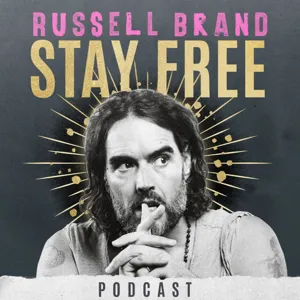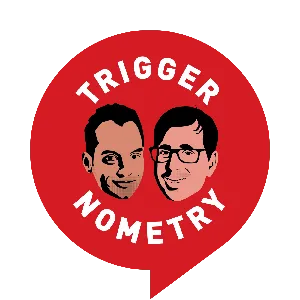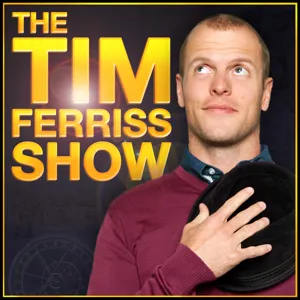Brought to you by AG1 all-in-one nutritional supplement, Helix Sleep premium mattresses, and LinkedIn Jobs recruitment platform with 900M+ users.
Nassim Nicholas Taleb (@nntaleb) spent 21 years as a risk-taker (quantitative trader) before becoming a researcher in philosophical, mathematical, and (mostly) practical problems with probability.
Taleb is the author of a multivolume essay, the Incerto (The Black Swan, Fooled by Randomness, Antifragile, The Bed of Procrustes, and Skin in the Game), covering broad facets of uncertainty. His work has been published into 49 languages.
In addition to his trader life, Taleb has also written, as a backup of the Incerto, more than 70 technical and scholarly papers in mathematical statistics, genetics, quantitative finance, statistical physics, medicine, philosophy, ethics, economics, and international affairs around the notion of risk and probability (grouped in the Technical Incerto).
Taleb is currently Distinguished Professor of Risk Engineering at NYU's Tandon School of Engineering (retired). His current focus is on the properties of systems that can handle disorder ("antifragile").
*
Scott Patterson (@pattersonscott) is an investigative reporter for The Wall Street Journal, currently based in Washington DC, working on climate and energy policy. His new book is Chaos Kings: How Wall Street Traders Make Billions in the New Age of Crisis, a profile of the rise of “black-swan traders,” such as Nassim Taleb and Mark Spitznagel, as well as a survey of the many perils the world faces today—and how we might fix them.
Scott has covered everything from Berkshire Hathaway to stock exchanges to high-speed traders to the financial regulators. His first book, The Quants, describes the rise of mathematical finance and delves into its role in the 2008 financial blowup. Dark Pools, his second book, tells how computer traders took control of the U.S. stock market, starting from the birth of computer trading in the 1980s to the explosion of high-frequency trading in the late 2000s.
*
This episode is brought to you by LinkedIn Jobs. Whether you are looking to hire now for a critical role or thinking about needs that you may have in the future, LinkedIn Jobs can help. LinkedIn screens candidates for the hard and soft skills you’re looking for and puts your job in front of candidates looking for job opportunities that match what you have to offer.
Using LinkedIn’s active community of more than 900 million professionals worldwide, LinkedIn Jobs can help you find and hire the right person faster. When your business is ready to make that next hire, find the right person with LinkedIn Jobs. And now, you can post a job for free. Just visit LinkedIn.com/Tim.
*
This episode is also brought to you by AG1! I get asked all the time, “If you could use only one supplement, what would it be?” My answer is usually AG1, my all-in-one nutritional insurance. I recommended it in The 4-Hour Body in 2010 and did not get paid to do so. I do my best with nutrient-dense meals, of course, but AG1 further covers my bases with vitamins, minerals, and whole-food-sourced micronutrients that support gut health and the immune system.
Right now, you’ll get a 1-year supply of Vitamin D free with your first subscription purchase—a vital nutrient for a strong immune system and strong bones. Visit DrinkAG1.com/Tim to claim this special offer today and receive your 1-year supply of Vitamin D (and 5 free AG1 travel packs) with your first subscription purchase! That’s up to a one-year supply of Vitamin D as added value when you try their delicious and comprehensive daily, foundational nutrition supplement that supports whole-body health.
*
This episode is also brought to you by Helix Sleep! Helix was selected as the best overall mattress of 2022 by GQ magazine, Wired, and Apartment Therapy. With Helix, there’s a specific mattress to meet each and every body’s unique comfort needs. Just take their quiz—only two minutes to complete—that matches your body type and sleep preferences to the perfect mattress for you. They have a 10-year warranty, and you get to try it out for a hundred nights, risk-free. They’ll even pick it up from you if you don’t love it. And now, Helix is offering 25% off all mattress orders plus two free pillows at HelixSleep.com/Tim. The 25% off offer is valid until September 10th.
*
[09:44] How Scott and Nassim first connected.
[12:02] Why Nassim would rather be remembered as a scholar than a trader.
[14:01] You can’t forge a new friendship without breaking a few eggs.
[16:22] Silent risk, tail events, and one-trick ponies.
[25:56] What prompted Scott to write Chaos Kings?
[33:41] Pseudo-efficiency, pseudo-optimization, and pseudo-sorries.
[36:49] The joy of writing a preemptive resignation letter.
[37:39] Developing resilience against criticism.
[40:33] Recurring patterns in successful investors.
[44:15] Nassim: contrarian, or simply independent?
[46:44] Jiving with skeptical turkeys.
[51:53] Living in the polycrisis.
[53:54] The precautionary principle.
[1:00:07] Fat tails, thin tails, and the COVID vaccine.
[1:11:03] GMO risks and Monsanto intimidation tactics.
[1:14:45] Implementing the precautionary principle at a large scale.
[1:16:49] Uncertainty and the climate crisis.
[1:19:45] Convexity in the face of financial crisis.
[1:27:12] Are investors overpowered in an interconnected world?
[1:31:36] Utilizing the precaution principle in the real world (for better and worse).
[1:36:53] The flow-on effect of having skin in the game.
[1:39:37] The ponzification of startups and an overdue reckoning.
[1:42:51] What convexity at the center of all things conveys.
[1:49:27] Where to find Scott and Nassim.
[1:50:44] What Nassim is working on now.
[1:53:37] New insights from ancient words.
[1:57:26] Parting thoughts.
*
For show notes and past guests on The Tim Ferriss Show, please visit tim.blog/podcast.
For deals from sponsors of The Tim Ferriss Show, please visit tim.blog/podcast-sponsors
Sign up for Tim’s email newsletter (5-Bullet Friday) at tim.blog/friday.
For transcripts of episodes, go to tim.blog/transcripts.
Discover Tim’s books: tim.blog/books.
Follow Tim:
Twitter: twitter.com/tferriss
Instagram: instagram.com/timferriss
YouTube: youtube.com/timferriss
Facebook: facebook.com/timferriss
LinkedIn: linkedin.com/in/timferriss
Past guests on The Tim Ferriss Show include Jerry Seinfeld, Hugh Jackman, Dr. Jane Goodall, LeBron James, Kevin Hart, Doris Kearns Goodwin, Jamie Foxx, Matthew McConaughey, Esther Perel, Elizabeth Gilbert, Terry Crews, Sia, Yuval Noah Harari, Malcolm Gladwell, Madeleine Albright, Cheryl Strayed, Jim Collins, Mary Karr, Maria Popova, Sam Harris, Michael Phelps, Bob Iger, Edward Norton, Arnold Schwarzenegger, Neil Strauss, Ken Burns, Maria Sharapova, Marc Andreessen, Neil Gaiman, Neil de Grasse Tyson, Jocko Willink, Daniel Ek, Kelly Slater, Dr. Peter Attia, Seth Godin, Howard Marks, Dr. Brené Brown, Eric Schmidt, Michael Lewis, Joe Gebbia, Michael Pollan, Dr. Jordan Peterson, Vince Vaughn, Brian Koppelman, Ramit Sethi, Dax Shepard, Tony Robbins, Jim Dethmer, Dan Harris, Ray Dalio, Naval Ravikant, Vitalik Buterin, Elizabeth Lesser, Amanda Palmer, Katie Haun, Sir Richard Branson, Chuck Palahniuk, Arianna Huffington, Reid Hoffman, Bill Burr, Whitney Cummings, Rick Rubin, Dr. Vivek Murthy, Darren Aronofsky, Margaret Atwood, Mark Zuckerberg, Peter Thiel, Dr. Gabor Maté, Anne Lamott, Sarah Silverman, Dr. Andrew Huberman, and many more.
See Privacy Policy at https://art19.com/privacy and California Privacy Notice at https://art19.com/privacy#do-not-sell-my-info.













